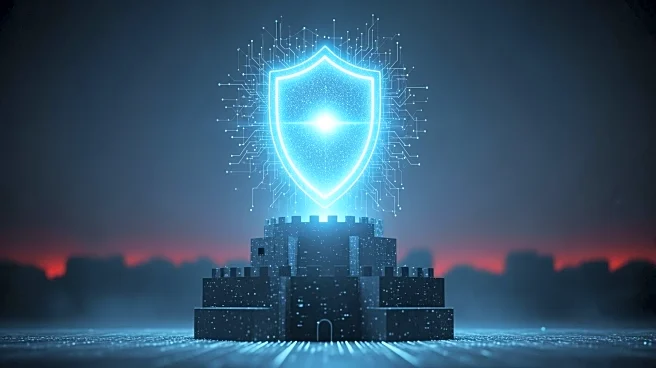What's Happening?
The cybersecurity industry is transitioning from reactive to proactive defense strategies in response to increasing nation-state espionage threats. Recent attacks by the China-linked group Salt Typhoon highlight vulnerabilities in network perimeters,
often due to outdated and unpatched devices. These adversaries exploit forgotten hardware, gaining access to sensitive information and establishing long-term persistence. The shift emphasizes the need for rigorous asset management and lifecycle planning to mitigate risks associated with end-of-life devices.
Why It's Important?
Proactive cybersecurity measures are essential to counter sophisticated threats from nation-state actors. As adversaries target network perimeters, organizations must prioritize the management of all devices and ensure timely patching. This approach not only protects against immediate threats but also strengthens national security by preventing long-term espionage. The focus on proactive defense aligns with the National Institute of Standards and Technology (NIST) Cybersecurity Framework, promoting a comprehensive security posture.
What's Next?
Organizations are encouraged to adopt proactive threat hunting and cyber hygiene practices, assuming breaches have already occurred. This involves actively searching for behavioral anomalies and strengthening public-private collaboration to enhance cyber resilience. The industry may see increased investment in threat-informed training and AI-driven capabilities to stay ahead of evolving threats. As cybersecurity becomes a team sport, collaboration across sectors will be crucial in maintaining a robust defense against nation-state actors.
Beyond the Headlines
The shift to proactive defense highlights the importance of addressing technical debt and lifecycle management in cybersecurity. The focus on forgotten devices underscores the need for comprehensive asset inventories and decommissioning plans. This transition may lead to long-term changes in cybersecurity strategies, emphasizing the integration of offensive insights and defensive operations. The situation also raises questions about the ethical implications of cyber espionage and the role of international cooperation in safeguarding critical infrastructure.

















